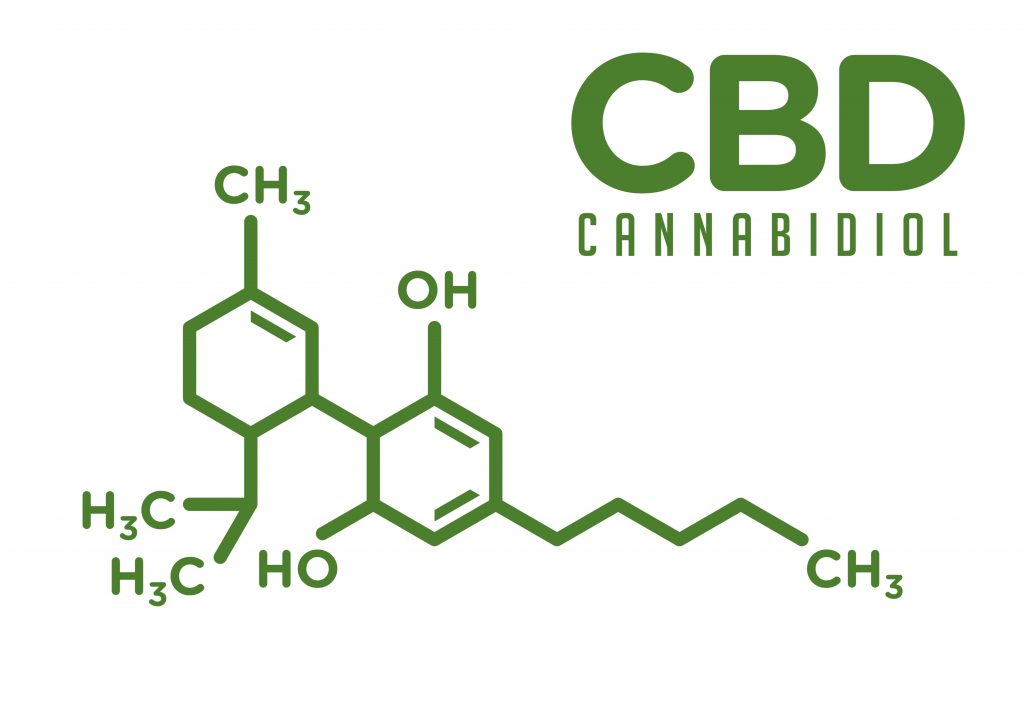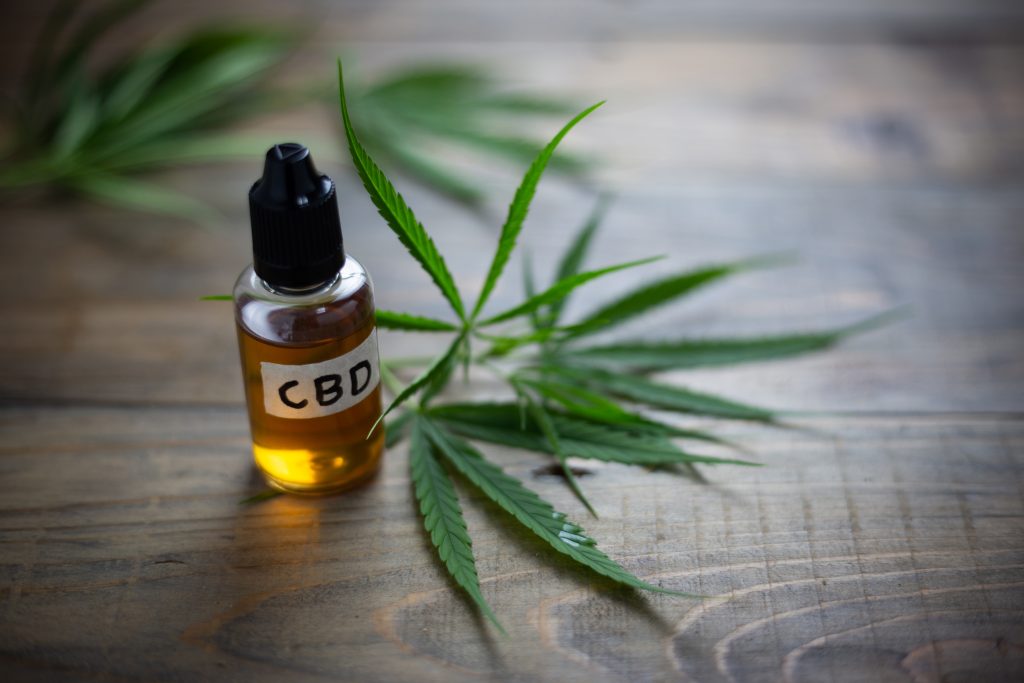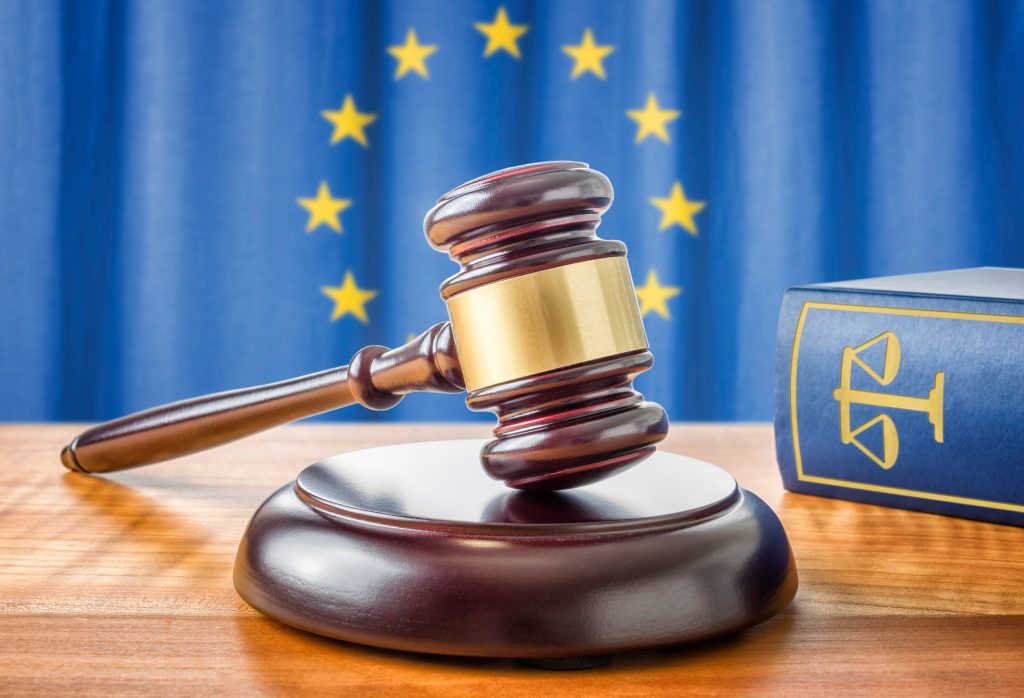In a high court ruling with far-reaching implications about EU governance vs member state law, the EU beat France making CBD legal throughout the EU, and setting a precedent for tons of cases in the future.
Stay up-to-date in the fast-paced world of legal cannabis. Sign up to our newsletter today so you always know what’s going on.
What was the case originally about?
Before we get to the ins and outs of this landmark EU high court ruling, let’s look at the case that forced its way to the top of the EU judicial system. The story starts in 2014 when Sébastien Béguerie and Antonin Cohen were prosecuted under French law for marketing and selling a hemp-derived CBD vape product under the name Kanavape. France has very specific laws regarding the parts of a cannabis plant that can be used (only the fiber and seeds), and the amount of THC that can be in a product. The latter, in fact, is 0% as of 2018, which created an essential ban on CBD oil, since its nearly impossible to create a CBD oil without at least a trace amount of THC. France also doesn’t allow the leaves or flowers of a cannabis plant to be used for preparations of any kind, and the Kanavape product was made from the whole plant.
Béguerie and Cohen were importing and selling a Kanavape product that was made in the Czech Republic. Though this Kanavape product followed all EU mandates concerning the use and sale of CBD products, particularly the parts of the plant used, and a THC content that didn’t exceed .2%, it didn’t gel with French law which disagreed with the parts of the plant used, and the THC in the product. The two were found guilty.
Best Black Friday Delta 8 THC Deals 2020
After the guilty verdict, the two men appealed their case, citing that the product they imported and sold was completely legal by EU law, and that EU law allows the free trade of products across EU member state borders so long as the products meet EU standards. In this case, they did, and in time it was eventually kicked up to the highest court in the EU, the Court of Justice of the European Union (CJEU) in Luxembourg, which had never made a ruling on CBD legality before. Today, November 19th, 2020, the court gave its ruling.
The court was tasked with making a ruling with a lot of further implications. Within the world of CBD itself it would make it impossible for any member state to deny an import that meets EU standards, thus legalizing CBD in all EU countries. The second aspect is that as part of the ruling, the court also had to decide whether CBD itself is a narcotic, thus setting an EU standard for that as well, and forcing that standard on all member states. Last, through these decisions, the EU set a standard for the general trade of products – CBD or anything else – leaving a large space open for new litigation and legislation based on this new case law.
What was the ruling?
As per the title of the article, the EU beat France as the CJEU found that France was in violation of EU law by not allowing products to be imported into the country that meet EU standards. Along with this, the CJEU also made the ruling that CBD is not a narcotic, saying “It does not appear to have any psychotropic effect or any harmful effect on human health.” It went on to say, “The national court must assess available scientific data in order to make sure that the real risk to public health alleged does not appear to be based on purely hypothetical considerations”.
Together, the two aspects of this ruling force a CBD legalization across all EU member states, reinforce that products can freely be traded between EU member countries, and also reinforce a general foundational aspect of the EU, that EU law trumps individual member state law. This, of course, gives a major boost to the CBD industry which has been operating in gray area throughout Europe for quite some time; and a major blow to any EU country that was trying to ban CBD, like Slovakia, which will now also have to allow citizens to use CBD products.

What about synthetics and pharmaceutical products?
One of the interesting pieces of information to be made clear when the EU beat France in court, was that France had actually not banned synthetic CBD, only regular CBD – or plant-derived. Synthetic CBD is essentially the same thing chemically, but created in a laboratory instead of grown as a plant, and is the basis for a burgeoning synthetics industry, led mainly by pharmaceutical and biotech companies. This industry, in fact, threatens the actual CBD and cannabis industries. The overall lower cost of producing synthetics, over a cannabis plant industry that has grown more expensive through the instilling of infrastructure like regulation and taxation, has made synthetics much more popular. What this means is that France just spent years to fight two guys in court on the basis of selling an unsafe product, when it already allowed that same product to be sold, so long as it was made in a laboratory. Basically, France just fought a fight to allow the pharmaceutical version of CBD to be sold, while banning the plant version. Luckily, the EU beat France.

But let’s take a closer look at the situation for just a minute. One of the pharmaceutical cannabis products that is allowed in France is Epidiolex, a CBD-derived drug put out by GW Pharmaceuticals. This is the same drug at the center of Italy’s current legislative contradiction. Within the past few months, Italy has had two different government agencies put out opposing mandates. The Agriculture Agency listed CBD as an agricultural product in July, making it freely available for use in tons of products. About two months later, the Ministry of Health decided to list CBD as a medicine, making it only available with permission from the Medicines Agency, thus making it illegal to sell CBD products. This came complete with a warning to providers to take products off of shelves.
This discrepancy was made that much more stomach-turning by the idea that Epidiolex was just about to launch in the country. So now that makes two countries that specifically put out mandates to curb CBD usage, while accepting the pharmaceutical version instead. And funny enough, it was June, 2018 that Epidiolex was approved by the FDA in the US, the same time France made the designation that CBD oil must have 0% THC, creating the essential ban. Maybe it was just a coincidence…
Does all this sound familiar?
The case of France vs the EU highlights the same general controversy that is currently going on in the US, and has been for years. The idea of individual states legalizing cannabis (either medically or recreationally) while it remains illegal by federal standards. While there does seem to be a general upward trajectory in terms of change, starting with the latest Farm Bill which legalized hemp products with a THC content of no more than .3%, this discrepancy between federal and state law has been causing many problems for years. In fact, up until partway through the Obama administration, the federal government was constantly at odds with legal smokers, often putting them in jail even though they were going by their own state’s laws.

If the US did the same thing as the EU, it would mean that all 50 states would be required to bend a knee and accept the legalization. As of yet, it hasn’t happened, but the EU ruling might give some indication as to what might happen in such a situation.
Conclusion
The question of why France made the ban in the first place, and why the country was willing to go to such great legal lengths when it already was allowing a pharmaceutical version of the same thing to be sold, are certainly good questions to ask. In the end, GW Pharmaceuticals might be one of the biggest losers in this, and I certainly won’t be shedding a tear for their monetary loss.
CBD is now not a narcotic by EU law, and EU member states must abide by EU mandates concerning CBD usage since the EU beat France in court. All this is fantastic and moving in the right direction, but there is one more thing to consider. In two weeks, there will be a vote on WHO cannabis scheduling recommendations. How that vote goes could very well impact what the EU just decided today.
Resources
Forced Legalizations: EU & France Battle it out Over CBD Laws
Mexico Still Waiting on Its Promised Cannabis Legalization
German Cannabis Flower Market is Ready to Explode
The New Italian Cannabis Contradiction
South Africa Introduces Some of the Most Lax Laws on Cannabis Yet Newest Cannabinoid Powerhouse – CBC – What Can It Do for You?
What is DELTA 8 THC (FAQ: Great resource to learn about DELTA 8THC)
Legal for a Day – The Mahashivaratri Festival and Nepal’s Changing Cannabis Laws
Slovakia Is Only EU State to Ban CBD
The CBD Flowers Weekly newsletter (your top resource for all things smokable hemp flowers)
The Medical Cannabis Weekly newsletter (International medical cannabis business report)
What’s France Up To? New Cannabis Fines and Litigation Over CBD
The Delta 8 Weekly Newsletter (All you need to know about Delta 8 thc) and the Best Black Friday Delta 8 THC Deals 2020. Fly with Cannabis – Which Countries Let You Do It
Is Australia’s Capital Leading the Way for Legal Cannabis Down Under?







